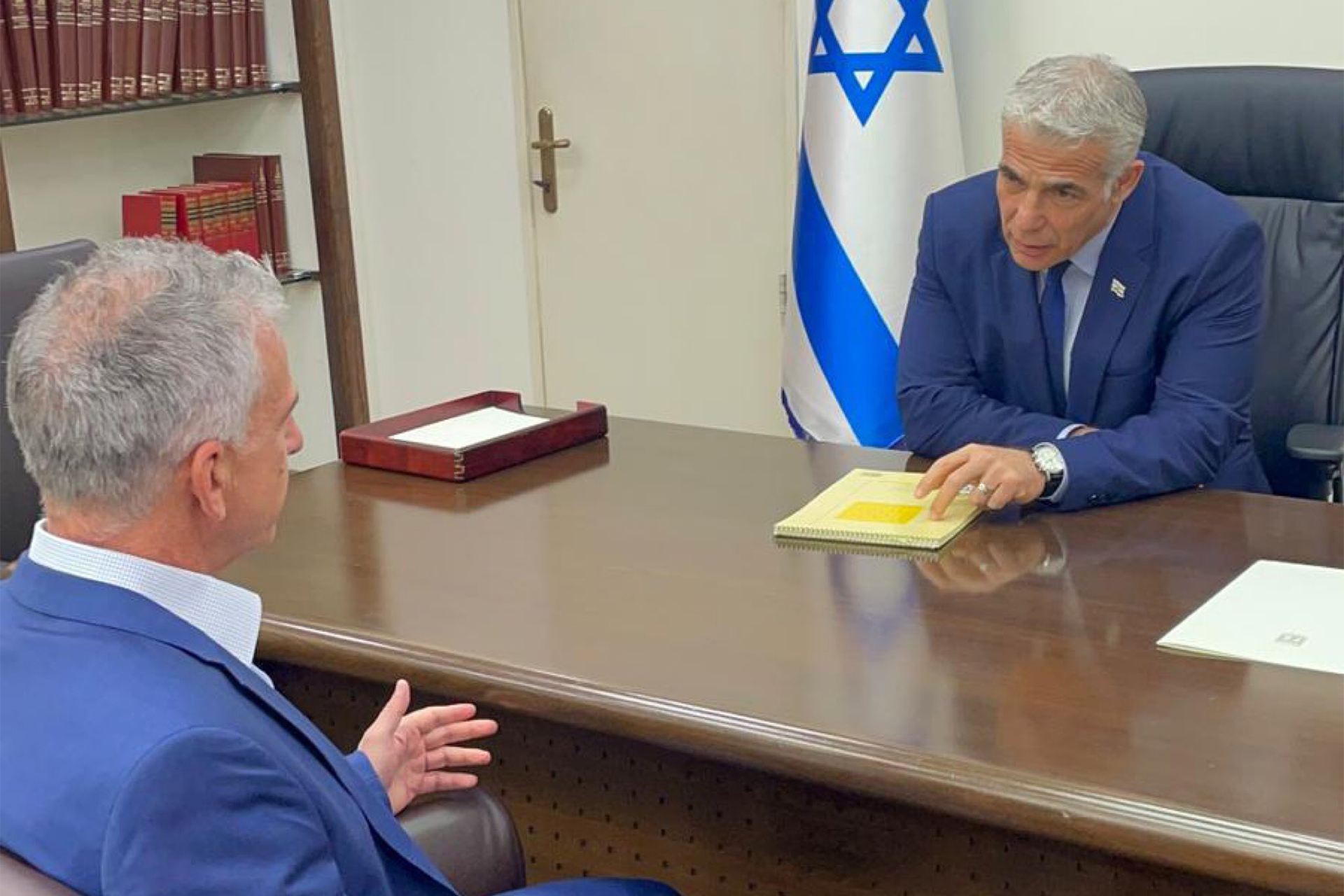On Thursday, the head of the Israeli Mossad, David Barnea, reviewed "sensitive intelligence materials" regarding the Iranian nuclear file, with US officials, in the United States.
A statement by the Israeli Prime Minister's Office stated that "the Mossad chief reviewed, during meetings with American officials, sensitive intelligence materials regarding the Iranian file, during his visit to the United States."
The statement stated that "the series of meetings included both CIA chief William Burns, FBI chief Christopher Wray, National Security Adviser Jake Sullivan, and US Secretary of Defense Lloyd Austin, and other senior State Department officials.
The statement indicated that "Israel will not stand idly by while Iran continues to deceive the world."
He pointed out that US officials stressed during the meetings that the United States would not allow Iran to obtain a nuclear weapon, and that the administration would continue to work in full cooperation with Israel on regional issues related to its security.
gap widening
For its part, the White House revealed Thursday that the United States and Iran have become "far away" from any deal related to the nuclear deal.
"We are no longer as close to any agreement as we were before," said John Kirby, US National Security Council Strategic Communications Coordinator.
He pointed out that there are "gaps" in the positions between the Iranian and American parties.
Kirby stressed that US President Joe Biden is still "committed to diplomacy" toward Iran, noting that he "wants to ensure that there are other options available to deprive Tehran of the ability to produce a nuclear weapon if we reach an agreement."
He continued, "Washington continues to work to revive the nuclear agreement, but its patience is running out."
And the American newspaper "The Wall Street Journal" had quoted - quoting informed sources - that the Biden administration is keeping Israel closely informed about the ongoing negotiations on the nuclear agreement with Iran.
It is noteworthy that Iran sent last week its last response to the European Union's proposal with the aim of reviving the nuclear agreement, but Washington said that the Iranian response was "not constructive", and refused to link the return to the nuclear agreement with the IAEA investigations.
After abandoning the demand to remove the Revolutionary Guards from the US terrorism list, Iran is insisting on obtaining guarantees that include the US pledge not to withdraw from the nuclear agreement in the future. However, US officials said that the administration of President Joe Biden cannot restrict the next administration with such a pledge.

